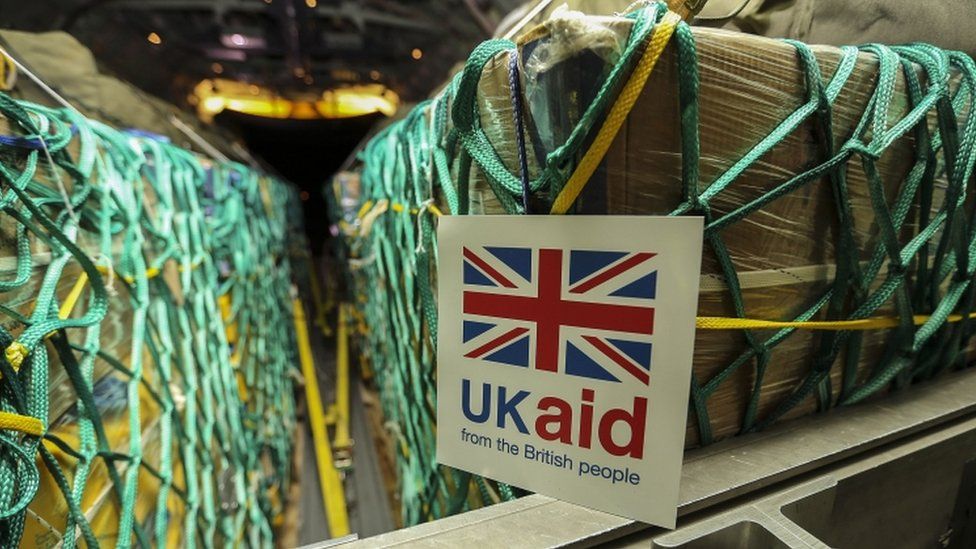Charity warns UK aid priorities to see 63% cut in funding
- Published

The government's priorities for foreign aid spending this year face a funding cut of up to 63 per cent, according to analysis by an international anti-poverty charity.
The One Campaign said existing commitments meant the government would be unable to protect its aid spending on areas like girls' education and humanitarian aid.
The government announced last year it would cut UK aid spending from 0.7 per cent of national income to just 0.5 per cent, a reduction of more than £4bn.
It has yet to say where the axe will fall, but it has set out its broad priorities for the £10bn remaining in the aid budget.
They include Covid and global health security, girls' education, science and technology, strengthening democracy, humanitarian aid and boosting economic infrastructure.
But analysis by the ONE Campaign - the global health and anti-poverty group founded by the U2 singer Bono - suggests even these priorities face spending cuts of up to 63 per cent.
That's because much of the aid budget will be consumed by long term commitments the government has already made and would find it hard to avoid.
The government has promised to spend £11.6bn of overseas aid over the next five years tackling climate change. It says it wants to remain the largest donor to the World Bank.
It promised in the Brexit withdrawal agreement to continue funding existing EU development programmes.
It remains committed to funding the international Global Fund organisation that tackles diseases like AIDS, tuberculosis and malaria, as well as the global vaccine alliance - Gavi.
And there are also commitments to spend overseas assistance on supporting refugees in the UK.
The ONE Campaign calculates all these commitments will cost £6.3bn in 2021. And that would leave just £3.8bn left for the government's bilateral priorities. That amounts to a 63 per cent cut from the equivalent £9.4bn that was spent in 2019.
The charity said this could leave nine million women and children at risk of malnutrition in Nigeria or 1.5 million women losing access to family planning in Ethiopia.
Romilly Greenhill, UK Director of The ONE Campaign, said: "These are the countries we're meant to be building bridges with, our new trading partners. Instead, we're turning our backs on the most vulnerable all while trying to claim we're leading the world in tackling global challenges."
She added: "These cuts would hit doubly hard because so much of the aid budget is already tied up on long-standing commitments, meaning the amount left for discretionary spending is significantly lower than expected.
"To put it simply, it will be extremely difficult for the Government to make the proposed cuts, whilst also protecting their priority areas - health and education - in 2021. This means sliding backwards on the exact issues that have been hit hardest by the pandemic."
A spokesman for the Foreign, Commonwealth and Development Office said: "We will spend more than £10 billion this year to fight poverty, tackle climate change and improve global health - making us one of the world's biggest aid donors.
"The impact of the pandemic on the UK economy has forced us to take tough but necessary decisions, including temporarily reducing the overall amount we spend on aid. We are still working through what this means for individual programmes."
- Published25 November 2020
- Published6 March 2021